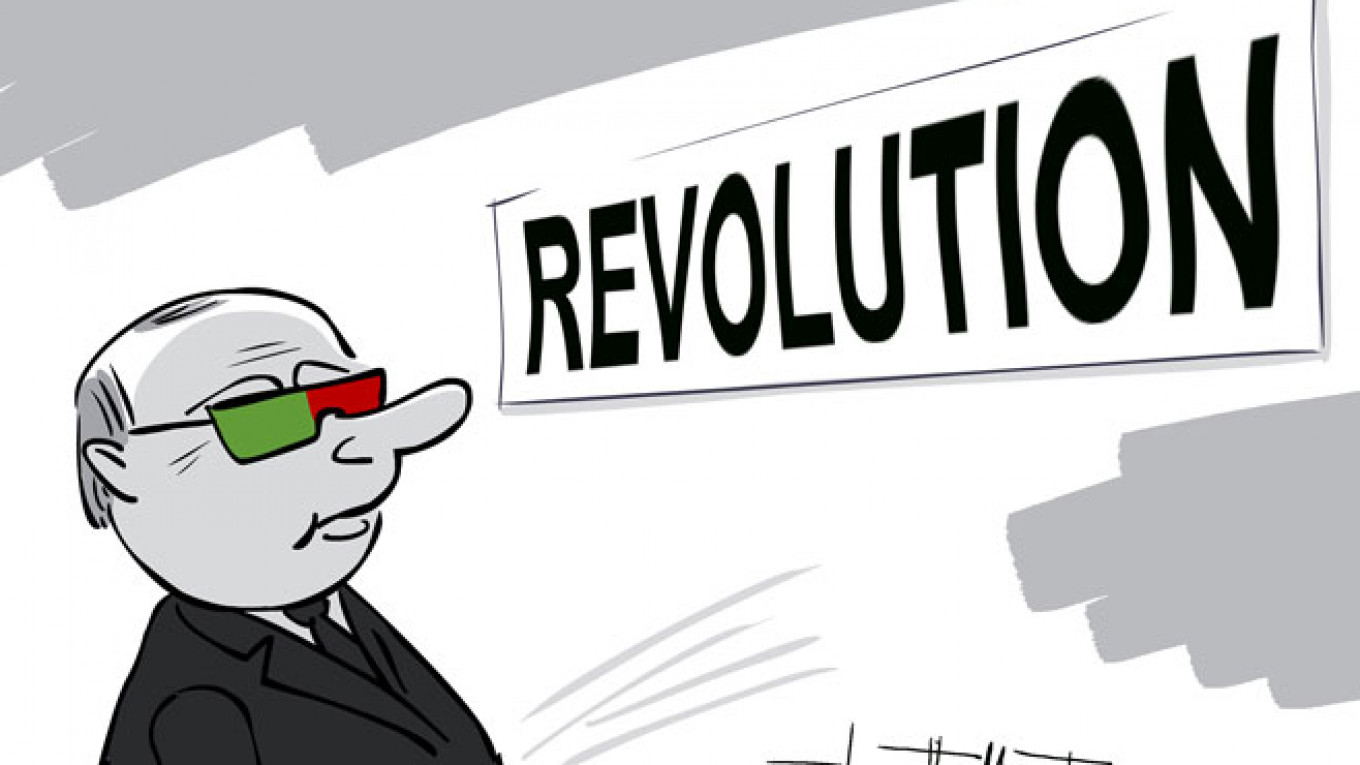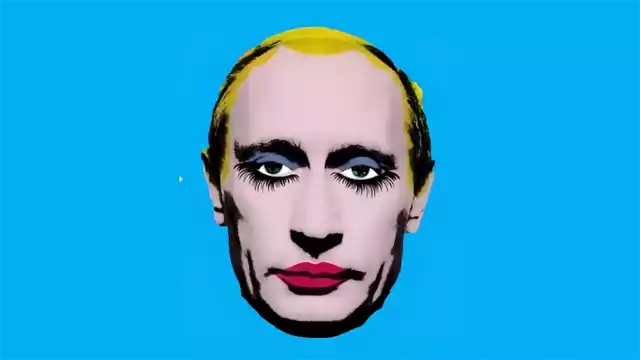Last week, the Russian Security Council published its analysis of the 35-page National Security Strategy that the U.S. published in early February, thereby giving an indication of just how thoroughly Russian officials study U.S. doctrinal papers.
On average, the Kremlin devoted one full day of study for each half-page of text, and yet, amazingly, it managed to completely overlook a number of factors that Washington considers essential to U.S. national security. These include improving domestic prosperity, the ongoing fight against global poverty and the struggle against deadly infections and international terrorism.
As expected, the Security Council chose to focus on the fact that the document is openly “anti-Russian.” And in one sense, they are right.
Indeed, Moscow no longer has grounds for complaining that it receives too little attention from Washington, as it did with the previous National Security Strategy doctrine released five years ago. Russia is mentioned constantly in this document — right alongside the Islamic State, Ebola and the proliferation of nuclear weapons.
The U.S. sets out to prove that it is leading the world in combating these threats. The doctrine states, “We mobilized and are leading global efforts to impose costs to counter Russian aggression, to degrade and ultimately defeat the Islamic State, to squelch the Ebola virus at its source, to stop the spread of nuclear weapons materials, and to turn the corner on global carbon emissions.”
At the same time, the Kremlin tried mightily to pretend that its annexation of Crimea and the hybrid war it is conducting in Ukraine are not the real causes of the current Cold War. According to Moscow, Washington was only waiting for a pretext to isolate Russia on the international arena and spoil its relations with other states, and just as Russia was getting up off its knees.
Significantly, Security Council experts contend that the threat to Russia stems from U.S. military superiority and Washington’s intention to use some sort of “advanced techniques for color revolutions” against it.
And while the U.S. doctrine does openly state a desire for military superiority, it makes no mention of any desire to topple the Moscow regime. Apparently, that is how Security Council experts interpreted Washington’s intention to support people’s struggle for their rights and for the rule of law.
The day after Russia published its analysis, it became clear why the Kremlin suddenly remembered the U.S. National Security Strategy a month and a half after it first appeared. In his recent speech before the Federal Security Service collegium, President Vladimir Putin practically equated the military threat to Russia with foreign attempts to interfere in Russia’s internal affairs — attempts that, interestingly, only he could see.
In a desire to prove U.S. perfidy, Putin could find no better evidence than to claim that “the unilateral withdrawal by the United States from the Anti-Ballistic Missile Treaty has toppled the very foundation of the modern international security system.”
However, the president obviously forgot that, despite the U.S. having “toppled the very foundation of the modern international security system,” Moscow managed to sign two treaties with Washington that reduce strategic offensive arms — the Strategic Defensive Reductions Treaty in 2002 and the New START Treaty in 2010.
The question here is why, if Washington “toppled the very foundation of the modern international security system,” Moscow bothered to create some new structure in its place? Of course, nobody in Moscow bothers with such details.
And now, according to Putin, the United States is, on the one hand, trying to disrupt nuclear parity by “preparing Prompt Global Strike” and by “conducting operations in outer space.”
On the other hand, Putin argued that “Western special services continue their attempts at using public, nongovernmental and politicized organizations to pursue their own objectives, primarily to discredit the authorities and destabilize the internal situation in Russia. They are already planning their actions for the upcoming election campaigns of 2016-18.”
According to the Kremlin’s logic, an attempt to “discredit the authorities” — in other words, civil protest — is tantamount to a military threat. Russia’s own military doctrine says as much when it states that modern military conflicts begin with protests inspired by an enemy and carried out with the help of foreign special forces.
According to that logic, if the nuclear threat and the organization of civil protests are nothing more than different means for pressing military confrontation, then Russia’s defense agencies should find some sort of balance in opposing the U.S. military capability as well as the potential for political “destabilization.”
In this regard, it is appropriate to recall that before Russia formally adopted the most recent version of its military doctrine, rumors circulated that it would contain certain “red lines” that the West could not cross without triggering a pre-emptive nuclear strike from Russia. Thank goodness, no such nonsense made it into the doctrine.
However, in the current situation, it seems possible that the Kremlin might consider mass protests in the same light — that is, as an assault on the ruling regime and, therefore, on the very existence of Russia itself. After all, Putin did say that when he gave the order to annex Crimea, he also ordered the country’s nuclear forces to be put on full alert.
In its National Security Strategy, Washington claims that its ultimate goal is the complete elimination of nuclear weapons.
Moscow, to the contrary, considers nuclear weapons the basis of ensuring national security. That, in turn, determines its strategy. Apparently, the Kremlin hopes that nuclear intimidation can prevent a color revolution.
Alexander Golts is deputy editor of the online newspaper Yezhednevny Zhurnal.
A Message from The Moscow Times:
Dear readers,
We are facing unprecedented challenges. Russia's Prosecutor General's Office has designated The Moscow Times as an "undesirable" organization, criminalizing our work and putting our staff at risk of prosecution. This follows our earlier unjust labeling as a "foreign agent."
These actions are direct attempts to silence independent journalism in Russia. The authorities claim our work "discredits the decisions of the Russian leadership." We see things differently: we strive to provide accurate, unbiased reporting on Russia.
We, the journalists of The Moscow Times, refuse to be silenced. But to continue our work, we need your help.
Your support, no matter how small, makes a world of difference. If you can, please support us monthly starting from just $2. It's quick to set up, and every contribution makes a significant impact.
By supporting The Moscow Times, you're defending open, independent journalism in the face of repression. Thank you for standing with us.
Remind me later.







